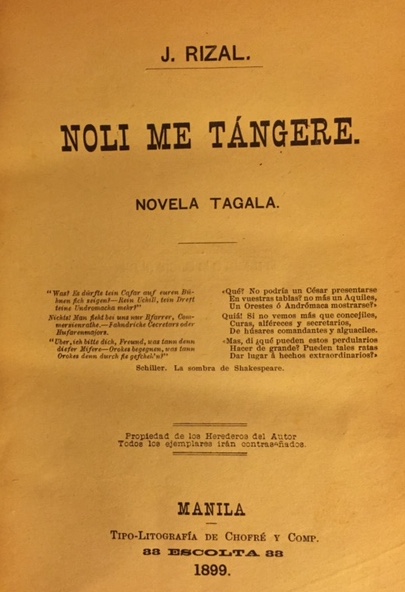|
María Clara
María Clara, whose full name is María Clara de los Santos y Alba, is the ''mestiza'' heroine in '' Noli Me Tángere'', a novel by José Rizal, the national hero of the Philippines. Her name and character have since become a byword in Filipino culture for the traditional, feminine ideal. María Clara is the childhood sweetheart and fiancée of ''Noli Me Tángere''s main protagonist, Juan Crisóstomo Ibarra y Magsalin, the son of Don Rafael Ibarra. Although raised as the daughter of Captain Santiago "Kapitán Tiyago" de los Santos and his wife Doña Pía Alba, who are both native Filipinos, María Clara is revealed to have been the illegitimate daughter of ''Padre'' Dámaso, a Spanish friar, who coerced Doña Pía into illicit sexual relations. Dámaso is made the girl's godfather; Doña Pía had died giving birth to Mariá Clara. Kapitán Tiyago's cousin, Tía Isabel, then came to be the dominant maternal figure in her life. As her beau Crisóstomo Ibarra was studying in ... [...More Info...] [...Related Items...] OR: [Wikipedia] [Google] [Baidu] |
Noli Me Tángere (novel)
''Noli Me Tángere'' (Latin for "''Touch me not''") is an 1887 novel by Filipino writer and activist José Rizal published during the Spanish colonial period of the Philippines. It explores perceived inequities in law and practice in terms of the treatment by the ruling government and the Spanish Catholic friars of the resident peoples a hundred years ago. Originally written by Rizal in Spanish, the book has since been more commonly published and read in the Philippines in either Tagalog (the major indigenous language), or English. The Rizal Law requires ''Noli'' and its sequel, '' El filibusterismo'' to be read by all high school students throughout the country. ''Noli'' is studied in Grade 9 and in Grade 10. The two novels are widely considered to be the national epic of the Philippines. They have been adapted in many forms, such as operas, musicals, plays, and other forms of art. The title originates from the Biblical passage John 20:13-17. In Rizal's time it also refe ... [...More Info...] [...Related Items...] OR: [Wikipedia] [Google] [Baidu] |
